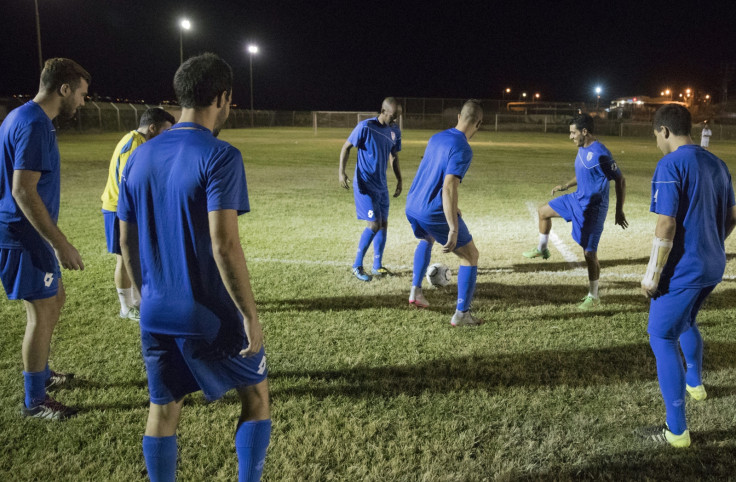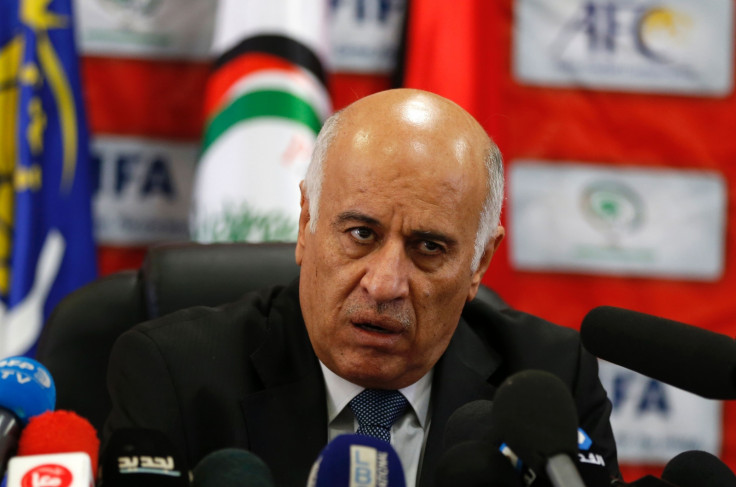Fifa must take strong stance against Israeli settlement clubs
Gianni Infantino must make the belated decision to ban clubs from playing matches in West Bank

Any lingering doubt about whether FIFA should continue to sponsor matches in Israeli settlements in the West Bank should have been erased last month when the United Nations Security Council voted to reaffirm the unlawfulness of settlements, established on occupied Palestinian land. A meeting of Fifa officials on Tuesday [10 January], against the backdrop of the decision over whether to expand the World Cup to 40 or 48 teams, will test whether the world football association is prepared to start playing by the rules.
Of the clubs that belong to the Israel Football Association, an affiliate of FIFA, six are located in Israeli settlements in the West Bank, part of the territory of FIFA's Palestinian affiliate. For the last year and a half, world football's governing body's leadership has dodged the decision on their status, opting instead to urge FIFA's Israeli and Palestinian affiliates to agree a solution between them, while extending the mandate of a monitoring committee appointed to determine the clubs' fate. The issue is high on the agenda in Zurich. Any decision other than ending FIFA-sponsored play in the settlements – including further delay – would flout not just international consensus but also FIFA's human rights responsibilities.
As well as being unlawful under international humanitarian law, Israeli settlements in the West Bank contribute to serious human rights abuses. The settlement clubs play their home games on land unlawfully seized from Palestinians, and West Bank Palestinians are not allowed to enter the settlements to play, coach or even watch the matches. The settlements are also a direct cause of harsh restrictions on Palestinians' freedom of movement, access to natural resources and ability to run businesses or build homes.

FIFA has recently re-affirmed its commitment to human rights, even commissioning a public report on implementing its corporate social responsibility. But FIFA's repeated, inexplicable delays, most recently postponing a vote on the issue at the October 2016 council meeting, threaten to tarnish the reputation of the body that newly elected president Gianni Infantino vowed to reform after the corruption scandals of his predecessor Sepp Blatter.
Infantino says he doesn't want to mix politics with football. But nothing could be more deeply political, and more deeply flawed, than ignoring the clear position of the international community that settlements are illegal and that third parties should distinguish Israel and the territory it occupied in 1967, as the Security Council resolution calls for. The resolution's assertion that the settlements are unlawful makes the call for FIFA to stop recognising them as legitimate sites for official matches all the more urgent.

Indeed, FIFA's own rules forbid a member association like Israel's from playing on the territory of another member association, in this case the Palestinian Football Association. When the Russian Football Union tried to field clubs from occupied Crimea in its national league in 2014, UEFA, the European branch of FIFA, promptly kicked them out. In doing so, UEFA followed FIFA's actions in nearly every other occupation case, including Nagorno-Karabakh in the South Caucasus and northern Cyprus, not to allow an occupying power to field teams from the territory in its national league. And who was the UEFA secretary general who instructed the Russian football association to stop holding matches in occupied Crimea? None other than Infantino.
Further delay will only further politicise what should be a simple question: on which land is the Israeli association allowed to hold football matches? In answering that question, FIFA should heed the UN Security Council's reaffirmation that the West Bank is not part of Israel, and that settlements are illegal. The only logical conclusion is for FIFA to instruct the Israel Football Association to stop holding matches in West Bank settlements.
Sari Bashi (@saribashi) is Israel and Palestine advocacy director at Human Rights Watch and the author of a report on settlement football clubs.
© Copyright IBTimes 2024. All rights reserved.






















